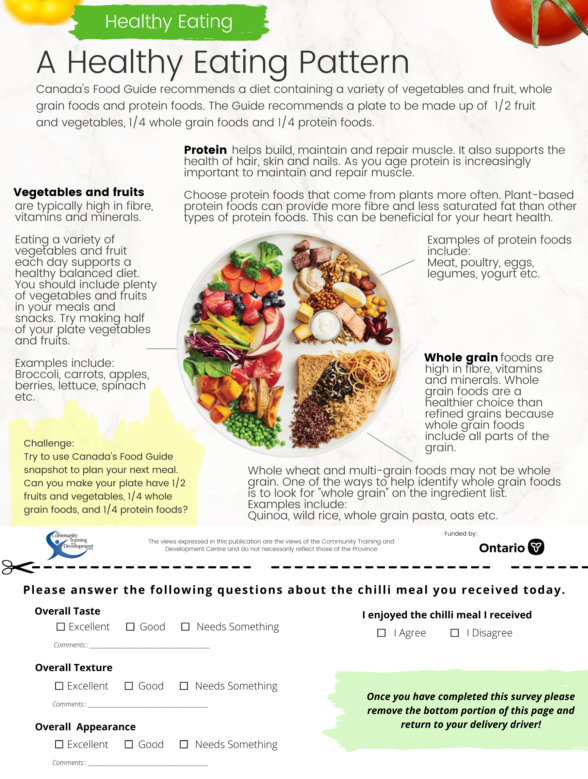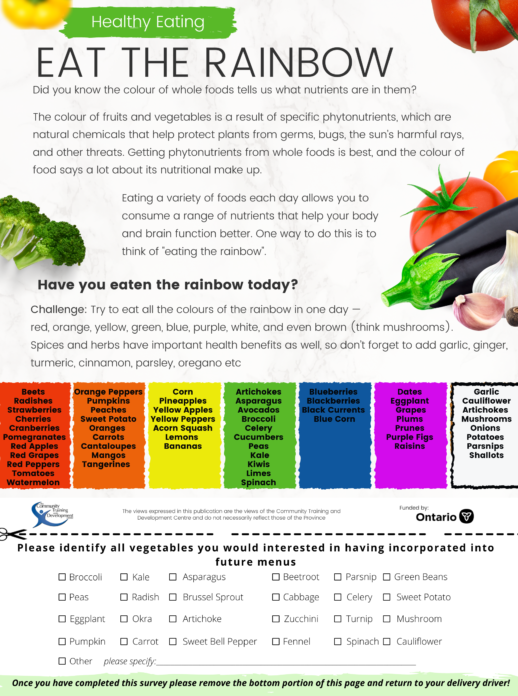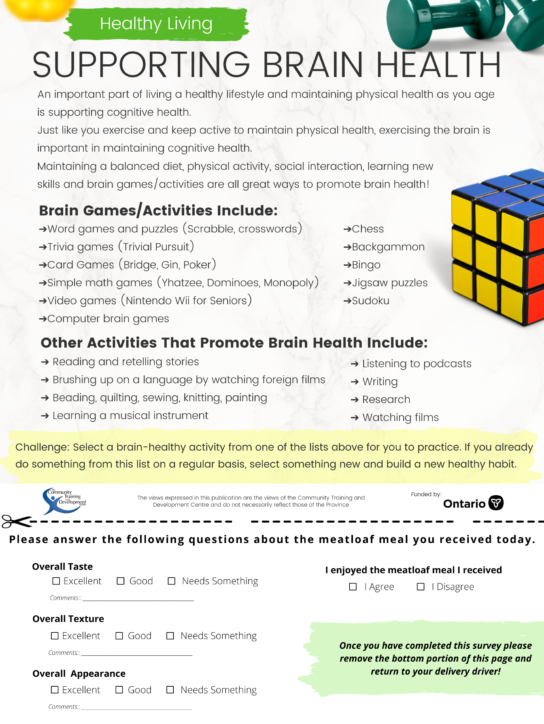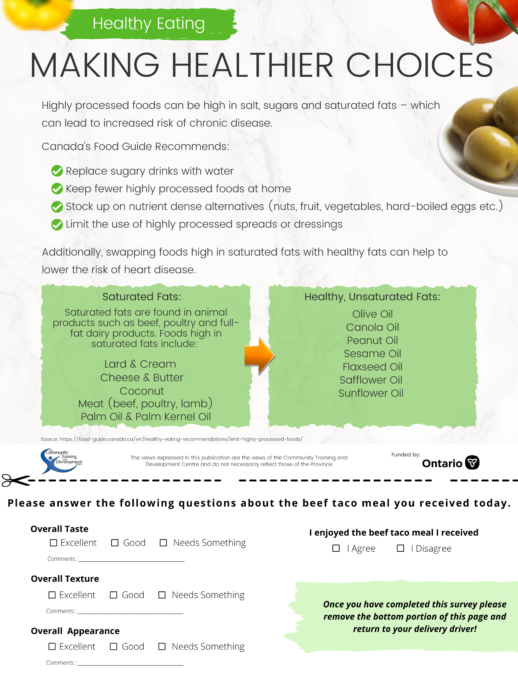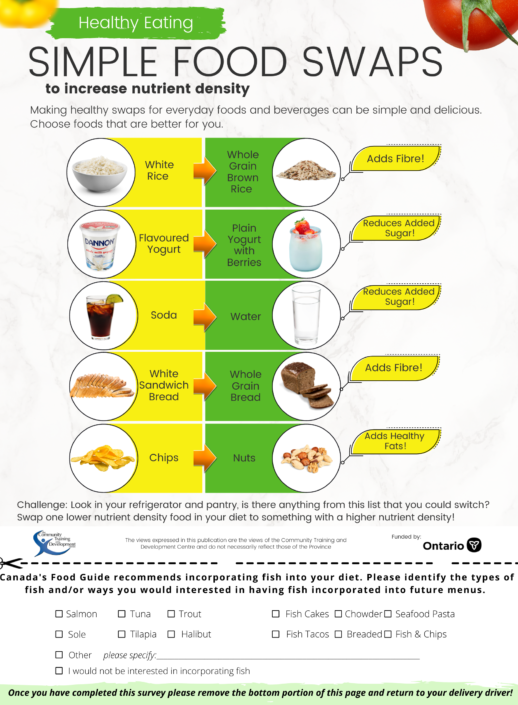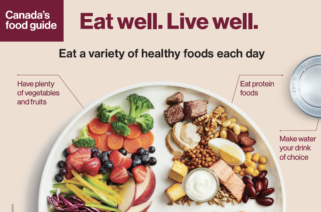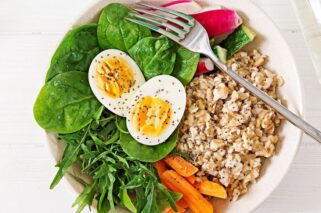The Community Training and Development Centre has developed a toolkit with information on the importance of quality nutrition for the health and wellbeing of older adults. Below you will find downloadable resources and information on how seniors can stay healthy while ageing-in-place.
Download our Keeping Seniors Healthy at Home guides with information and tips about nutrient-dense food, brain health, exercise, and social connection.
Review the additional resources section with a list of links, carefully selected from trustworthy sources that will help you can learn more about eating well.
Our infographics can be downloaded and shared and were designed to deliver a focused and simplified message about quality nutrition.
Don't forget to explore the recipe section! Download 20+ Health Canada approved recipes you can try at home and share with friends and family.
Please explore the resources and enjoy the recipes as you taste the delicious healthy outcomes.
Keeping Seniors Healthy at Home
What factors influence healthy aging? Research has identified everything from eating a nutrient-dense and balanced diet, regular physical activity, routine health screenings, staying socially active in a community, a good sleep routine, challenging the brain, and engaging in activities/hobbies that bring you joy and a sense of purpose. Download our guides below to learn more!
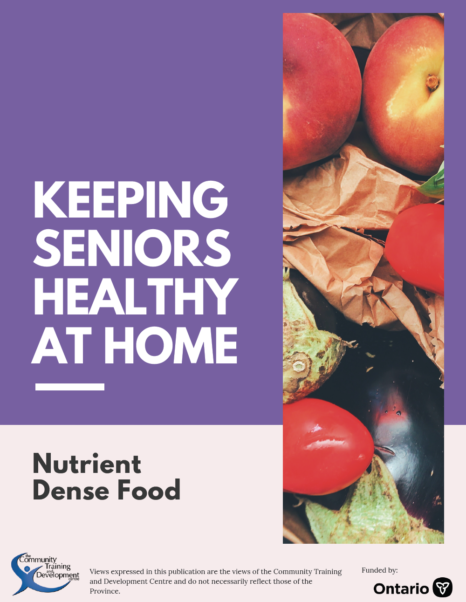
Nutrient Dense Food
Keeping Seniors Healthy at Home: Nutrient Dense Food
The basic concept of nutrient density is the amount of nutrients you get for the calories consumed. “Empty calories” is term which refers to foods that are high in calories and do not contain much nutritional value (fast food, highly processed foods, baked goods, cookies, breads, sugary drinks etc). Most nutrient-rich foods can be found in the perimeter of the grocery store (fresh foods, vegetables, meats, fish, dairy) and “empty calorie” foods are often in the middle isles (highly processed foods, snacks and products that have a long shelf life such as cereals and canned food). Download our guide below to learn which food items are nutrient-dense, the benefits of these foods and how to easily add more of these delicious foods into your diet!
Exercise
Keeping Seniors Healthy at Home: Exercise
Exercise and physical activity are considered a cornerstone of almost every healthy aging program. Scientific evidence suggests that people who exercise regularly not only live longer, but they may also live better, and are less likely to develop heart disease, stroke and diabetes. All of these risks are associated with dementia. Physical activity also pumps blood to the brain, which nourishes the cells with nutrients and oxygen, and may even encourage the development of new cells. Download our guide below to learn simple tips on how to increase physical activity for yourself or someone you care for.
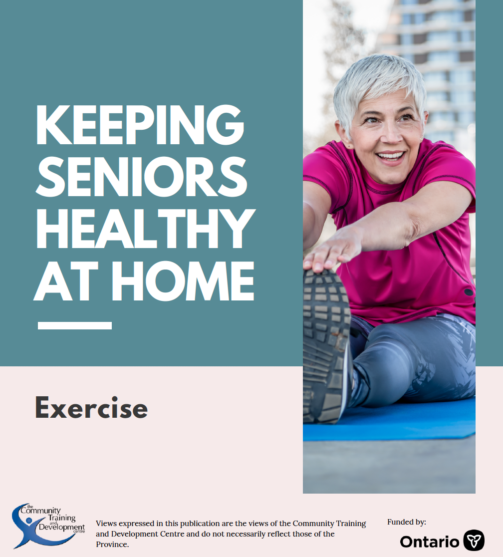
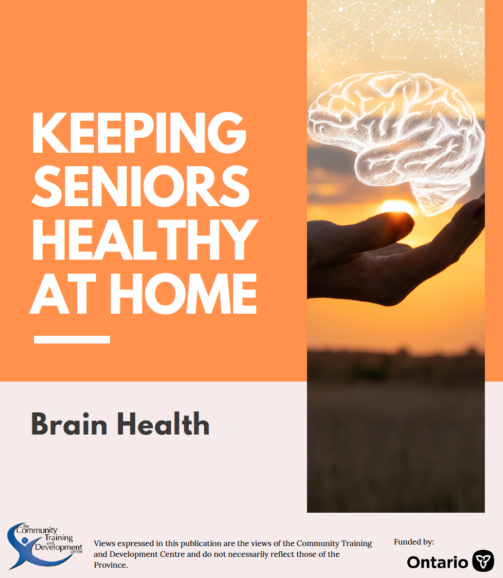
Brain Health
Keeping Seniors Healthy at Home: Brain Health
Brain health is about keeping the brain working at its best and reducing risks to it as we age. Research suggests the choices you make to keep your body healthy may be good for your brain as well. They also make it easier for the brain to cope with any changes that happen with aging and may reduce your risk for dementia later in life. It’s never too early or too late to start being brain healthy. Download your guide to brain health below!
Social Connection
Keeping Seniors Healthy at Home: Social Connection
Social relationships, or the relative lack thereof, constitute a major risk factor for health, rivalling the effects of well-established health risk factors such as smoking, high blood pressure, and obesity. Research continually shows that engaging in daily conversation, whether it’s a simple chat about the weather or a deep and meaningful conversation, can help improve mental and physical health. Download the guide below to learn more about simple ways to increase social engagement and improve mental and physical wellbeing.
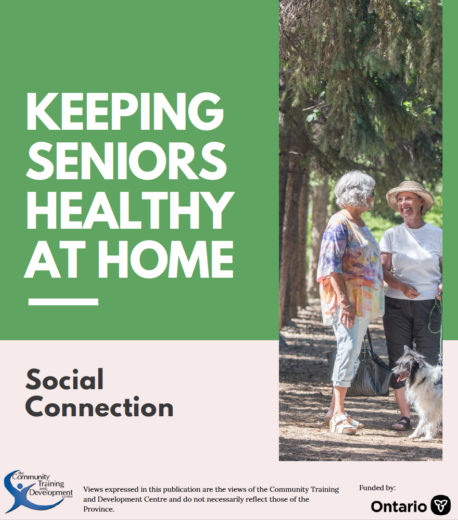
Recipes
Below we have selected 32 Health Canada approved recipes for you to download, print and share. Click the blue download button below to save all the recipes to your personal device, or flip through them below.
Additional Resources
Below are links to reputable Canadian websites and articles of interest that will teach you more about healthy eating, nutrient dense foods and the impact that simple food choices can have on your mental and physical health.
Canada's Food Guide
Health Canada
Dietitians of Canada
Heart & Stroke
Nutrition Connection
Articles of Interest
Below is a list of carefully selected articles from reliable sources. Each website will open in a new browser window and we encourage you to return here to read each article.

FOLLOW US FOR UPDATES!
Copyright © 2023 The Community Training and Development Centre

